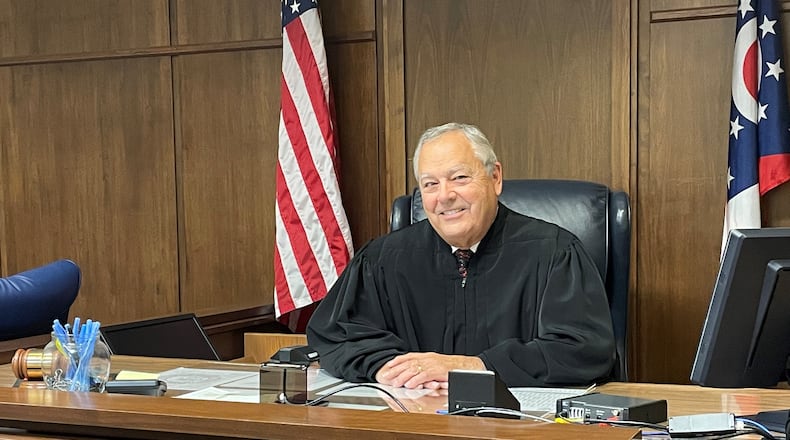“It’s been a very rewarding experience for me and as far as I’m concerned it’s the best job you can have as a lawyer,” Singer said about being a judge. “I think a lot of folks are suited for advocacy and for me, being impartial and doing the best I can to make the right decision is the rewarding part.”
The governor will appoint his replacement.
Dayton Bar Association President Merle Wilberding said Singer will be missed. He said Singer was concerned about justice and fairness and that everyone was treated fairly.
Judge Mary Katherine Huffman said Singer was instrumental in the creation of both the local women’s therapeutic docket and the mental health docket.
“He has been really the champion in our court for innovative programs that target specific populations,” Huffman said.
The women’s therapeutic court is for women with severe alcohol and or substance addiction and aims to reduce crime by changing the defendant’s behaviors with a structured program where an offender will meet with their probation officer regularly. The mental health court is designed to assist defendants with mental health issues through individualized treatment plans to reduce the risk of recidivism.
The courts are generally for low-level offenders with specific needs.
“(Singer) has really relied on the research and brought us to a place in this county where we are making certain that the people who enter the criminal justice system who need help can get the help,” Huffman said.
Singer said that he became interested in learning about mental health during a capital case where a defendant was either facing life in prison or the death sentence for shooting a person in the head. He said a mental health worker testified about brain damages the defendant had suffered and how it impacted impulse control.
He said through that testimony, he became interested in the topic of mental health. He said the Dayton legal community has kept an open mind and continues to use evidence-based research to better serve the public.
“I am going to miss working with my colleagues and the other judges on this court, they are professional,” Singer said. “And I’m going to miss working with the lawyers. It’s been the most meaningful part of my career working here on the bench and it was made that way by these folks.”
About the Author

